Majete
Majete is a Wildlife Reserve in the south-western part of Malawi that tells an inspiring story of resurgence and restoration.
Majete Wildlife Reserve was African Parks’ first mandate, signed with the government of Malawi in 2003. Prior to this, Majete was an unknown reserve where almost all its wildlife had been hunted out – only a few antelope remained. Just 12 scouts were employed, and not one tourist had visited the park in three years. With little hope for revival, it was the perfect place to put our model of delegated management to the test.
We immediately began creating the necessary infrastructure and establishing a collaborative relationship with local communities. In 2003, we reintroduced rhino, followed by elephant in 2006, lion in 2012, giraffe in 2018, cheetah in 2019, and wild dogs in 2021. Thanks to these introductions, along with effective park protection measures, wildlife numbers increased significantly and by 2016, Majete was able to supply wildlife to other parks in Malawi.
Majete has come a long way in the last 20 years – from a sink to a source of value, providing hundreds of jobs and supporting thousands of community members with education, health and socio-economic opportunities. With thriving wildlife, this once-derelict reserve has put Malawi on the map as a coveted wildlife destination.
Today, Majete is a living example of how sound management and community buy-in can transform a landscape into a mutually beneficial asset for both people and wildlife.
Majete Highlights
- Over 3,000 animals of 17 species have been reintroduced over 20 years. Births of nine wild dog pups and five giraffe calves have boosted these populations and provided evidence of the species thriving.
- A biennial aerial census conducted in November 2022 revealed that the reserve hosts over 12,000 animals, an overall increase of 10% since 2020.
- By 2017, the elephant population had grown so that 200 individuals could be translocated from Majete to Nkhotakota Wildlife Reserve to help repopulate that reserve as part of the “500 Elephants” translocation.
- Despite increasing poaching threats in the region, not one rhino or elephant has been poached since 2003 and 2006 respectively, thanks to effective conservation law enforcement and community engagement
- Community-run initiatives, such as beekeeping and fish farming are benefitting hundreds of community members with three tonnes of honey harvested in 2022.
- A scholarship programme provides school fees for over 100 local students every year.
- In 2022, the previous 2018 tourism revenue record was broken by an increase of more than 10% — generating its highest-ever tourist income to date.
On The Horizon
While Majete’s success is palpable, the story doesn’t end here: African Parks is committed to the ongoing management of the reserve as we strive towards long-term sustainability of the ecosystem and enduring benefits for surrounding communities. Making the reserve financially self-sustaining, by developing the tourism product, and improving the welfare of the people around the reserve, are constant goals.
By donating to African Parks today, you can help Majete to continue uplifting community and protecting wildlife populations.
Partners
Malawi Department of National Parks and Wildlife (DNPW) is the statutory organisation in charge of national parks, wildlife reserves and sanctuaries as well as wildlife management on communal lands in Malawi. Work began with the DNPW in Majete Wildlife Reserve in 2003 and in Nkhotakota Wildlife Reserve and Liwonde National Park in 2015.
Partners